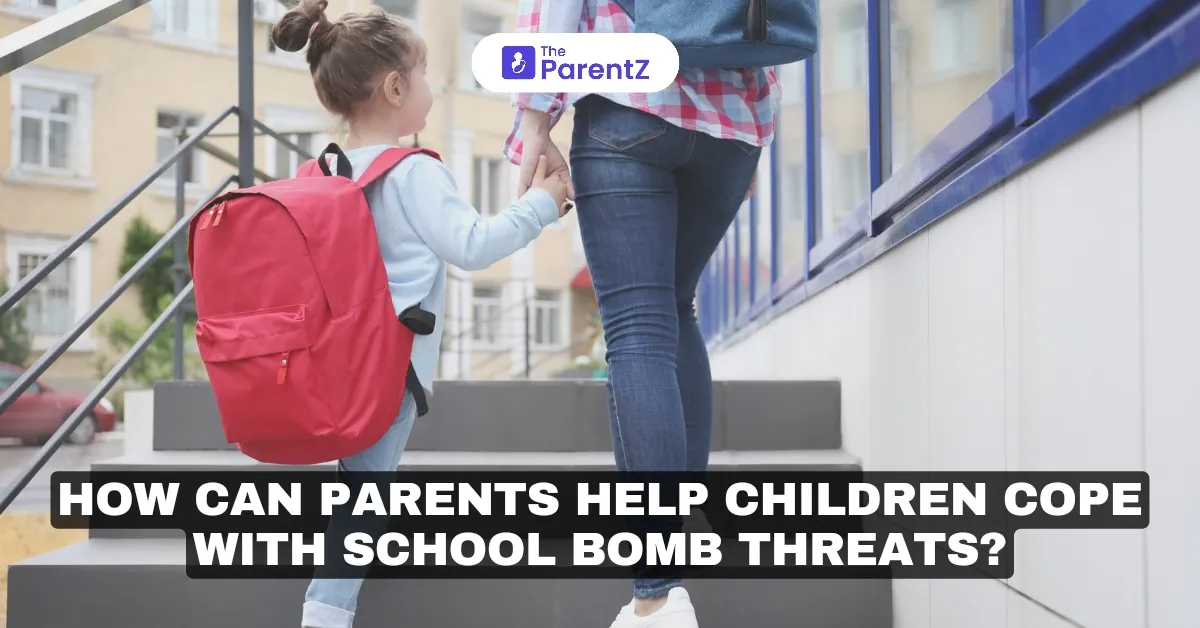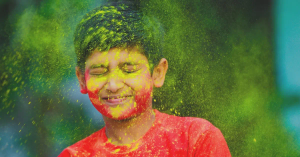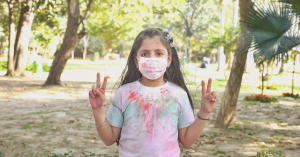This week, Delhi witnessed a terrifying wave of school bomb threats. Five incidents in just nine days – the most recent on Tuesday targeting schools like DPS RK Puram, Ryan International, and Gyan Bharati – have left a chilling mark on the hearts and minds of students, teachers, and parents. While, thankfully, no bombs have been found, the emotional impact is undeniable.
As parents, we face a difficult task: shielding our children from the darkness while ensuring they feel safe and prepared. Bomb threats are a particularly insidious form of terror, injecting fear into the very place where children should feel secure – their schools. So, how do we navigate this unsettling situation and help our children cope?
Understanding the Psychological Impact
The psychological toll of bomb threats on children cannot be understated. These incidents can trigger:
- Intense anxiety and fear that may manifest as physical symptoms like stomachaches, headaches, sleep disturbances, and changes in eating habits
- Heightened emotional vulnerability and potential long-term trauma responses
- A profound sense of insecurity that can disrupt their normal developmental processes
- Potential post-traumatic stress symptoms, including hypervigilance, nightmares, and emotional withdrawal
Signs of Distress
We need to be vigilant for signs of distress in our children following a bomb threat:
- Increased Anxiety: Look for signs such as excessive worry about safety or reluctance to attend school.
- Sleep Disturbances: Changes in sleep patterns, including nightmares or insomnia.
- Behavioral Changes: Withdrawal from activities they once enjoyed or changes in eating habits.
- Physical Symptoms: Complaints of headaches, stomachaches, or other stress-related physical symptoms.
Recognizing these signs early can help us intervene and provide the necessary support.
Open Communication
One of the most effective ways we can help our children cope is through open and honest communication. It is important to discuss the events surrounding the bomb threats without overwhelming them with details. Here are some tips for these conversations:
- Be Honest but Reassuring: Explain what happened in simple terms. For example, “Some schools received messages that made people worried. The police checked everything, and we are safe.”
- Listen Actively: Encourage children to express their feelings and concerns. Ask open-ended questions like, “How do you feel about what happened?” This helps them process their emotions.
- Limit Media Exposure: Continuous news coverage can heighten anxiety. You should monitor what your children are exposed to regarding these events.
Age-Appropriate Information
Mold your discussions based on your child’s age and maturity level. Younger children may need reassurance that they are safe without delving into the specifics of the threat. In contrast, older children may benefit from a more detailed discussion about safety protocols and emergency procedures.
Coping Strategies
Children learn coping strategies by observing their parents. It's essential for you to model calmness and resilience. Here are some strategies that can help:
- Maintain Routine: Keeping daily routines as normal as possible provides a sense of stability and security.
- Encourage Expression: Allow children to express their feelings through art, writing, or play. This can serve as an outlet for their emotions.
- Teach Relaxation Techniques: Introduce simple breathing exercises or mindfulness practices that can help reduce anxiety.
Reassurance and Support
Remind your child that it’s normal to feel scared, but emphasize that there are many adults dedicated to keeping them safe. Encourage them to focus on the positive aspects of their school experience and remind them of the supportive community around them.
Seeking Professional Help
If signs of distress persist or worsen, it may be beneficial for parents to seek professional help. Consulting with a child psychologist or counselor can provide additional support and coping strategies tailored to individual needs.
Conclusion
The recent bomb threats in Delhi have shaken the city's sense of security. However, by fostering open communication, focusing on safety measures, and prioritizing mental well-being, we can help our children navigate this unsettling situation and emerge stronger together. Let's create a future where fear doesn't shadow the joy of learning.






